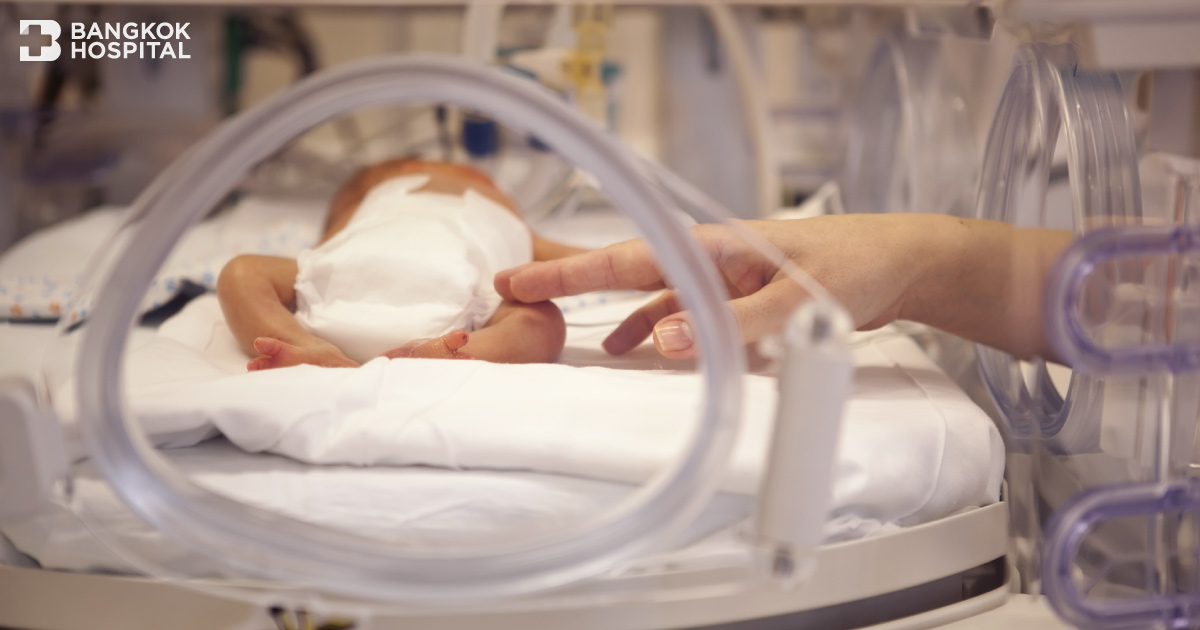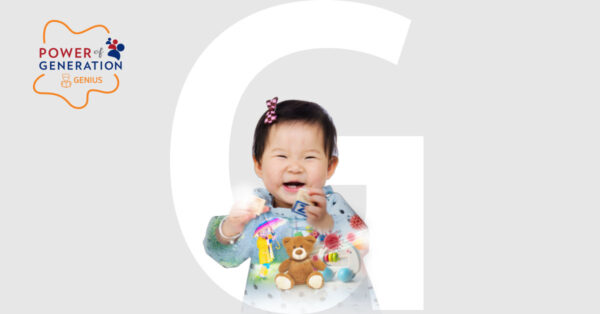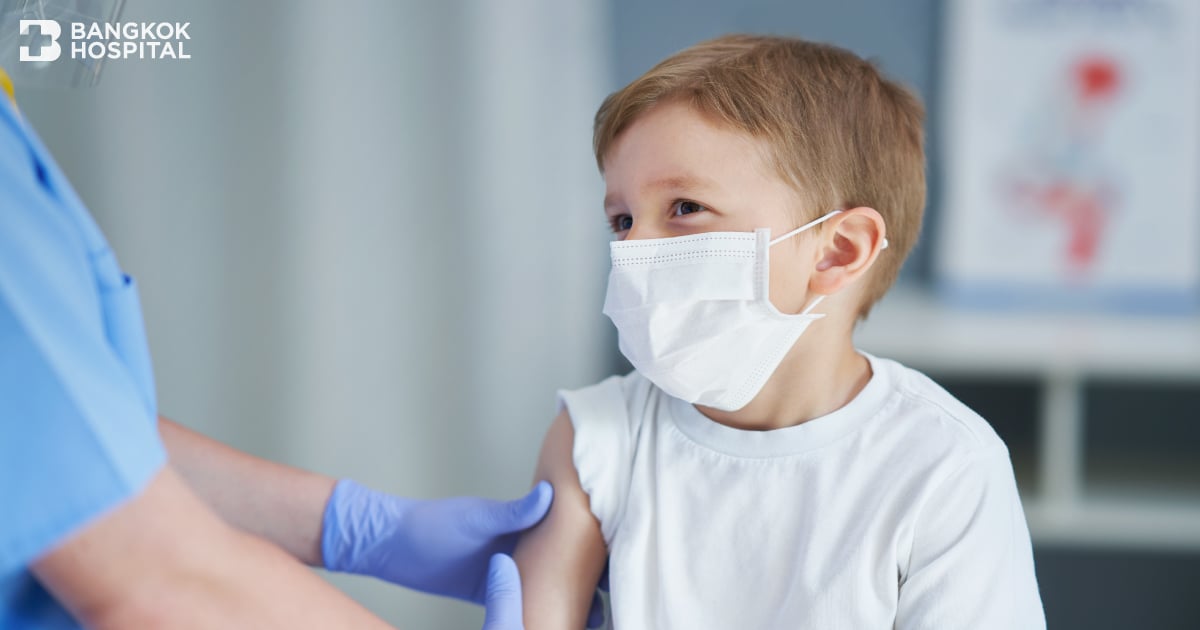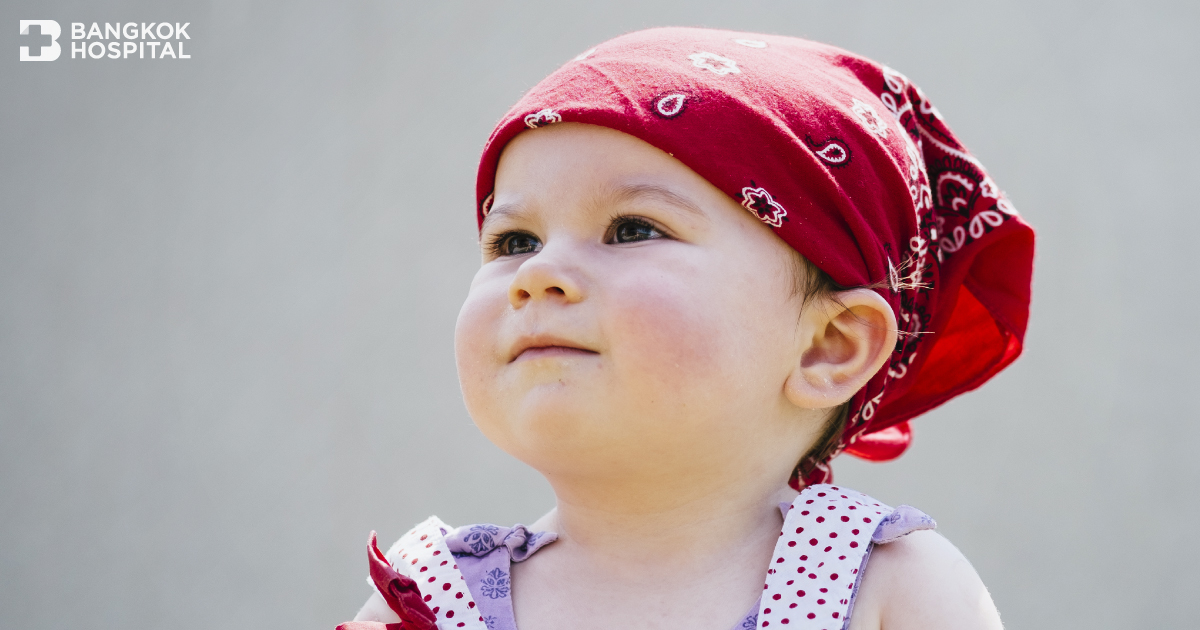For expectant mothers, taking care of your little one to ensure a smooth arrival into the world is of utmost importance. According to the National Institute of Child Health, Thailand sees about 700,000 newborns annually, with approximately 100,000 of them being preterm births, and the neonatal mortality rate being 6.7 per 1,000 live births, ranking third in ASEAN. Therefore, newborns, especially those in critical conditions, require specialized care from pediatricians in neonatology at Neonatal Intensive Care Units (NICU) to timely treat and minimize potential complications, as every minute in a newborn’s life is crucial, with even a day’s difference in delivery affecting their development.
Expectant Mothers: Recognize the Risks
Newborns may exhibit abnormalities if the expectant mothers have the following risk factors:
- Pregnancy at an age older than 35 years
- Mother being younger than 16 years
- Abnormal bleeding during pregnancy
- Placental abruption or low placental attachment
- High blood pressure, exceeding 160 mmHg
- Diabetes
- Infections, such as various strains of influenza
- Autoimmune diseases (SLE)
- Twin pregnancies
- Preeclampsia
- Excessive or insufficient amniotic fluid
- Premature rupture of membranes
Newborn Abnormalities
Critical conditions or abnormalities in newborns that require medical attention include:
- Preterm birth, less than 37 weeks gestation (or post 42 weeks gestation)
- Newborns weighing less than 2,500 grams or more than 4,000 grams
- Abnormal weight for gestational age
- Twin newborns
- Detected abnormalities such as oxygen deprivation
- Abnormal fetal positions, such as breech or transverse positions
- Complications during delivery
- Congenital disabilities
Caring for a Newborn
Intensive care from pediatricians is crucial for newborns, including the following necessities:
- 24-hour vital signs monitoring
- Maintaining proper body temperature
- Controlling and preventing infections
- Respiratory system care
- Monitoring for complications
- Monitoring, surveillance, and treatment of specific diseases
- Nutritional care
- Waste elimination care
- Short-term and long-term developmental monitoring
Special Care for Critical Newborns
Newborns with abnormalities need special care in various aspects as follows:
- Resuscitation and oxygenation of the newborn
Post-delivery care is critical as most newborns can breathe on their own, but only 1% might require resuscitation and ventilator support to breathe independently.
- Regulation of the newborn’s body temperature
Using an incubator helps maintain the appropriate temperature, ideally between 36.8 – 37.2 degrees Celsius, as lower body temperature can lead to pulmonary hypertension and breathing difficulties.
- Infection control
Infections can occur while the baby is in the womb, for instance, if the mother’s membranes rupture more than 18 hours before delivery, vaginal yeast infections, or urinary tract infections, among others.
- Appropriate fluid, nutrient, and dietary support
Emphasis on breastfeeding is paramount. However, if the newborn is sick, e.g., with low blood sugar, periodic blood glucose monitoring might be required, and for preterm newborns or those with rapid breathing who cannot eat by themselves, nutrient and fluid support via feeding tubes or intravenously may be necessary.
Additionally, the care for critical newborns involves the use of modern equipment such as incubators, high-frequency ventilators, nitric oxide systems for pulmonary hypertension treatment, and phototherapy lamps for jaundice. This ensures the newborn’s healthy development. Preventive measures for critical newborn conditions are possible if expectant mothers receive quality prenatal care from the beginning of pregnancy. This helps in monitoring the health of both mother and child and allows for proper, timely planning for delivery and treatment. Bangkok Hospital is ready to take care of pregnant women’s and newborns’ health, ensuring a strong, healthy start in life and developmentally appropriate growth. The NICU at Bangkok Hospital is staffed around the clock by specialized pediatricians in neonatology and perinatalogy who work closely with obstetricians to plan appropriate treatments. Throughout the treatment period, details are continuously communicated to parents for their peace of mind and understanding. Additionally, the NICU at Bangkok Hospital coordinates systematically for the transfer and care of patients from other hospitals to ensure both mother and newborn are healthy and have a high quality of life for the whole family.















